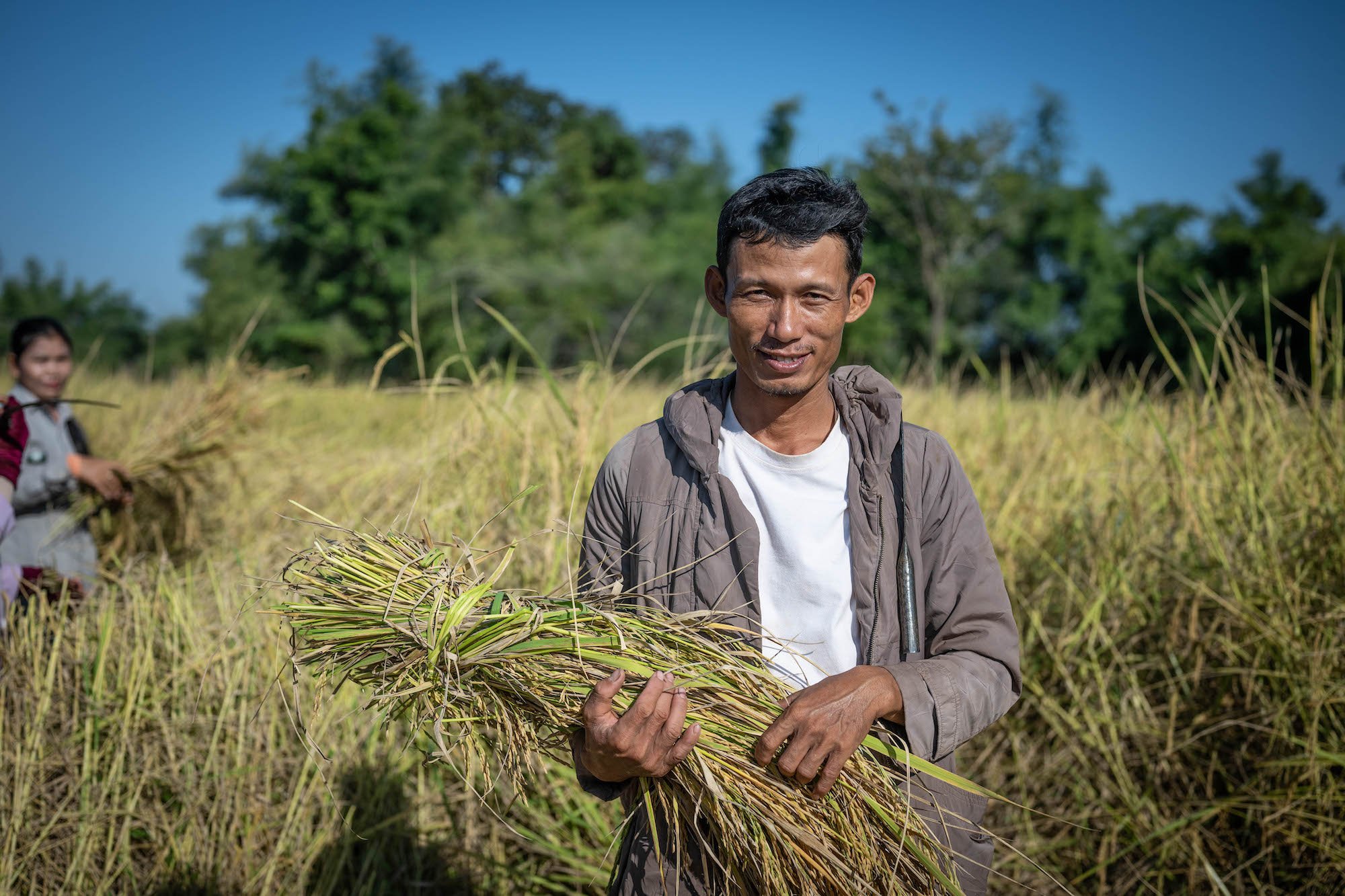From Minefields to Rice Fields
For decades, Cambodia has been plagued by the deadly remnants of war — landmines and unexploded ordnance (UXO) that continue to pose a danger to rural communities. The Khmer Rouge regime (1975–1979) along with previous and subsequent conflicts left behind vast minefields, particularly in border regions and strategic areas. Millions of landmines were laid, and even decades after the fighting ended, these hidden explosives continue to claim lives and restrict economic progress.
In regions like Battambang, where agriculture is the basis of the economy, landmine contamination has forced generations of farmers to work in fear. Families have been unable to use large portions of land, while others, unknowingly farming on mine-infested fields, have suffered devastating accidents.
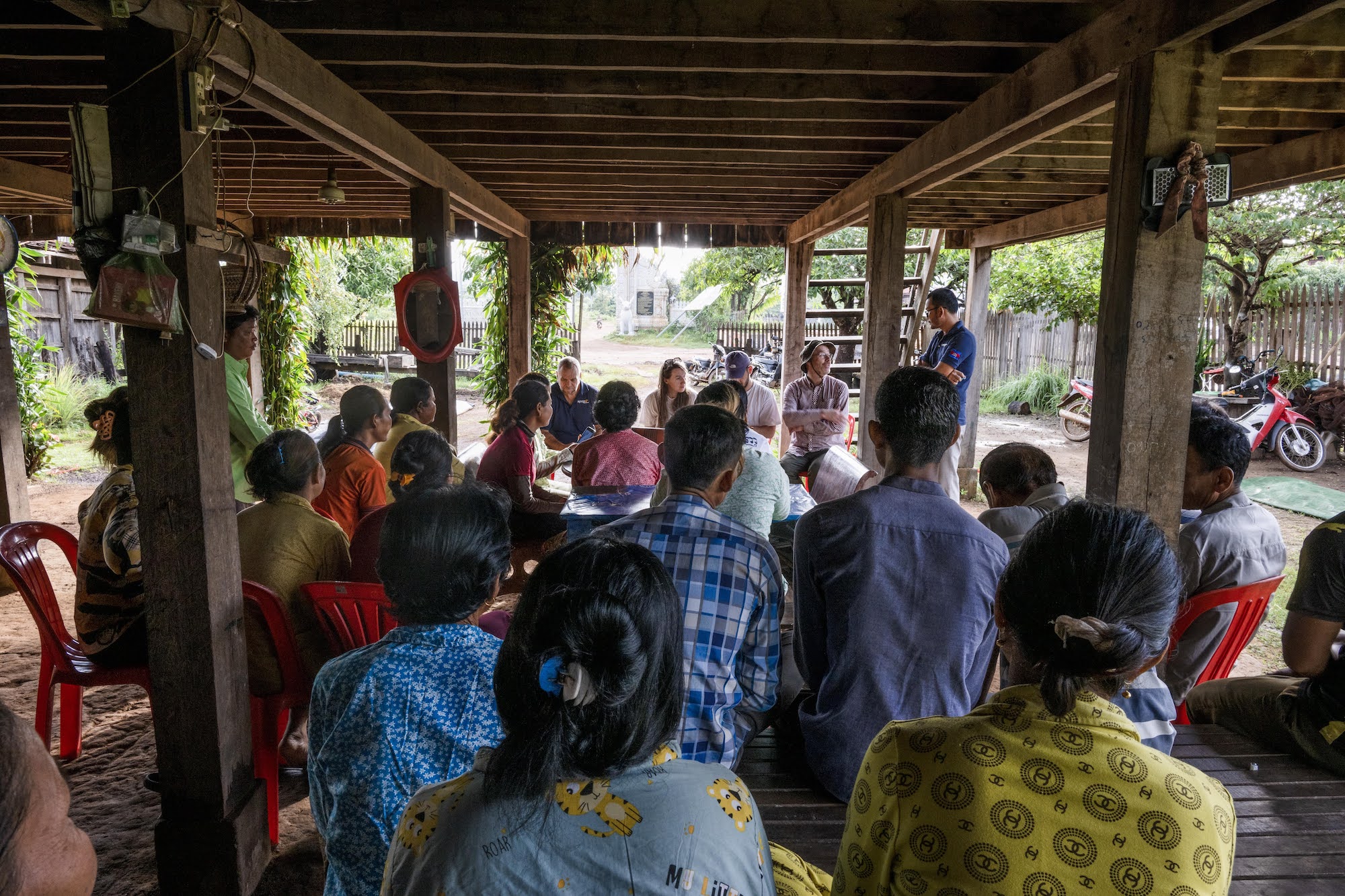
Sokken, a 38-year-old farmer, knows this reality firsthand. As a child, he and his family fled to the mountains to escape the war, returning only to find their land surrounded by deadly explosives. Years later, even after resettling in a new village, landmines remained an invisible but ever-present threat.
Through the Minefields to Rice Fields project, APOPO, in partnership with CMAC and with funding from the UK’s Foreign, Commonwealth & Development Office (FCDO), worked to clear the landmines in Kim Sokken’s village. In addition to making the land safe, the project introduced modern farming techniques, premium rice seed and training through CordAid, helping farmers not only increase their rice production but also improve their livelihoods.
In his own words, Sokken shares his journey — from a childhood marked by war and fear to a future filled with hope and opportunity.
Sokken’s Story
“I’m Sokken and I moved to this village 16 years ago after marrying my wife, who is originally from here. Before that, I lived in a nearby village in the same commune. My family now has five members — my wife, our three children, and me. My daughter, the youngest, is 5 years old, and my sons are 12 and 15. All of them go to school, which is about 4 or 5 kilometers from our house. My wife is a homemaker who cooks and takes care of the children while I manage our farm.
When I was 12 years old, we fled to the mountains to escape the war. Thankfully, we had brought some rice with us from home, and we survived by hunting animals and gathering plants in the forest. We stayed in the bush for two or three months. When we returned, we found some of our crops still usable — but the roads and paths near the fields were littered with landmines.
We became aware of the landmine problem through two things — knowing where the Khmer Rouge had been active and seeing where tragic accidents occurred. My aunt stepped on a landmine during that time. She survived but lost a leg and now uses a prosthetic. Though she can walk and work, her life became incredibly difficult, especially in the beginning.
From then on, living with the constant fear of landmines became part of our reality. Even after I moved to this village, I wasn’t aware that the fields here were also contaminated. I thought it was only a problem along the roads. I would even see landmines occasionally near the streams where I went fishing.
A few years ago, APOPO and CMAC came to our village. I remember the first time I saw the rats during an event at the local school. I thought, How can these small animals be so smart? How do they find landmines?
At first, I was scared because some of the fields they began clearing were ones I had been using for years. It was shocking to realize that I had been farming on landmine-contaminated fields. But I was also incredibly relieved when they started their work.
In total, APOPO cleared 10 hectares of land for us. Before that, much of it was overgrown and unusable. Now, we can use that land, and our productivity has increased significantly. Our farm spans about 40 hectares in total — where we grow rice and cassava. The newly cleared plots are now dedicated entirely to rice.
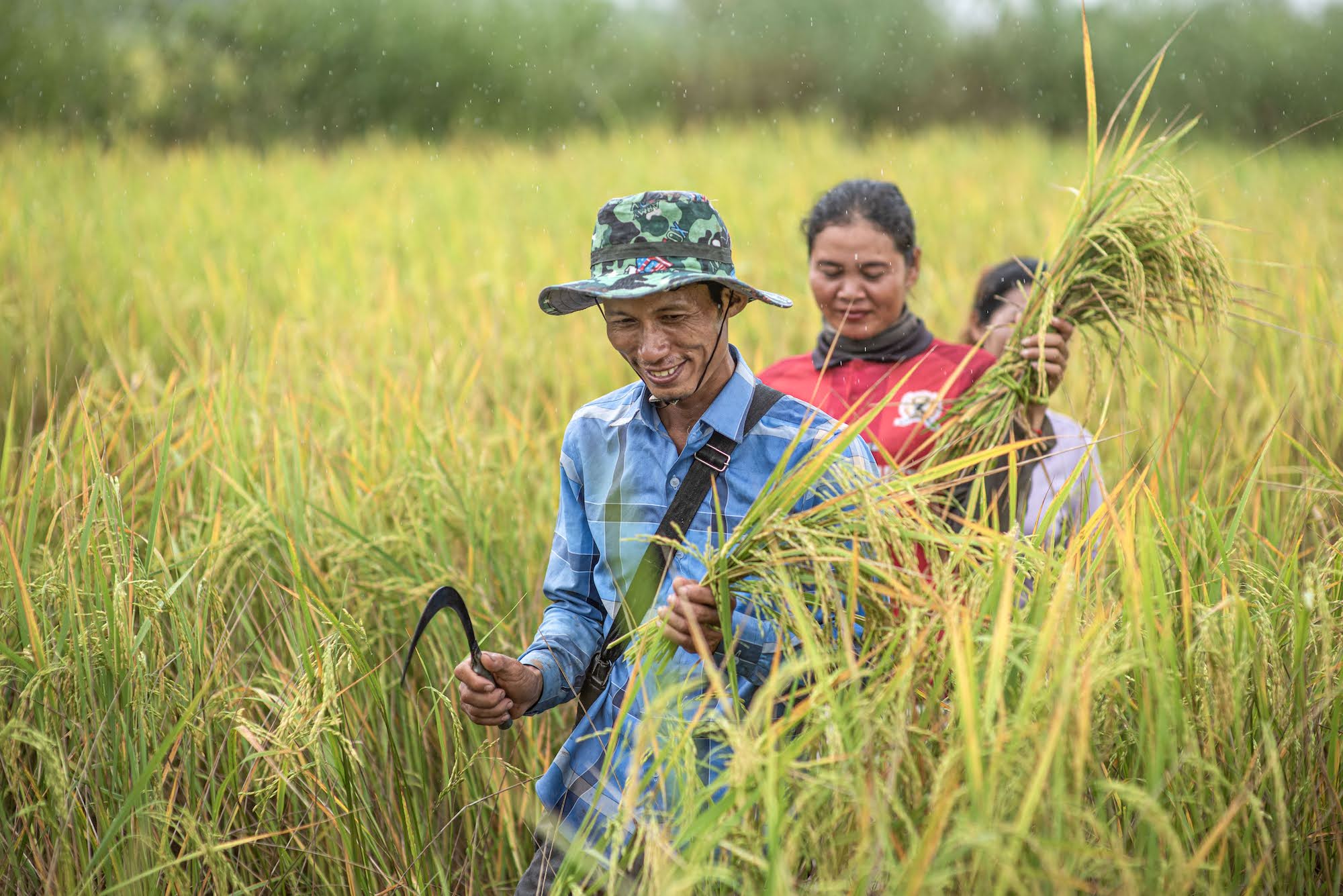
Our yearly rice production has increased to 60 or 70 tons — far more than before APOPO cleared the land. The cassava yield didn’t improve much this year due to growth issues, but the rice harvest has been better than ever, thanks to the guidance we received from the APOPO Minefields to Rice Fields program. They not only provided high-quality rice seedlings but also trained us on modern farming techniques.
I learned how to plow at the right depth, when and how to retain water for longer, and how to protect the crops from insects and parasites. These methods were new to me, and the training was incredibly insightful. The seeds they provided are excellent — both in taste and productivity.
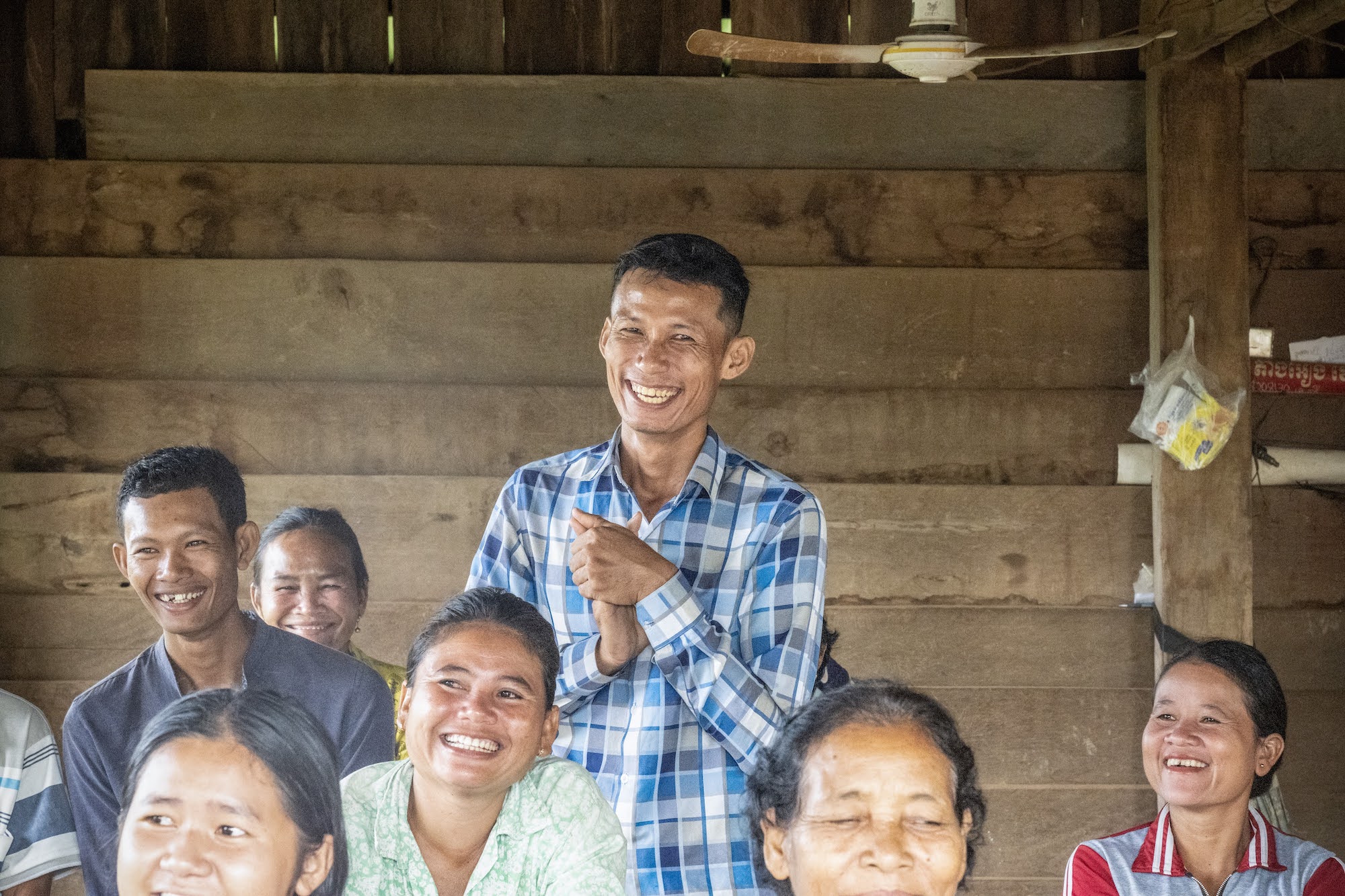
The improvements are visible not only on our farm but throughout the village. Everyone who attended the training and received seeds has experienced significant improvements — and the overall quality of life has increased as a result.
For my family, the changes have been life-changing. With the increased income, I was able to buy 10 more hectares of land and finish building our house. We can now afford to rent machinery for harvesting without any financial stress. Of our yearly rice production, we keep about 5 tons for seeds and family use, while the cassava is sold entirely.
The most significant relief is that since APOPO and CMAC came, I haven’t encountered any landmines or unexploded ordnance. That peace of mind is invaluable.
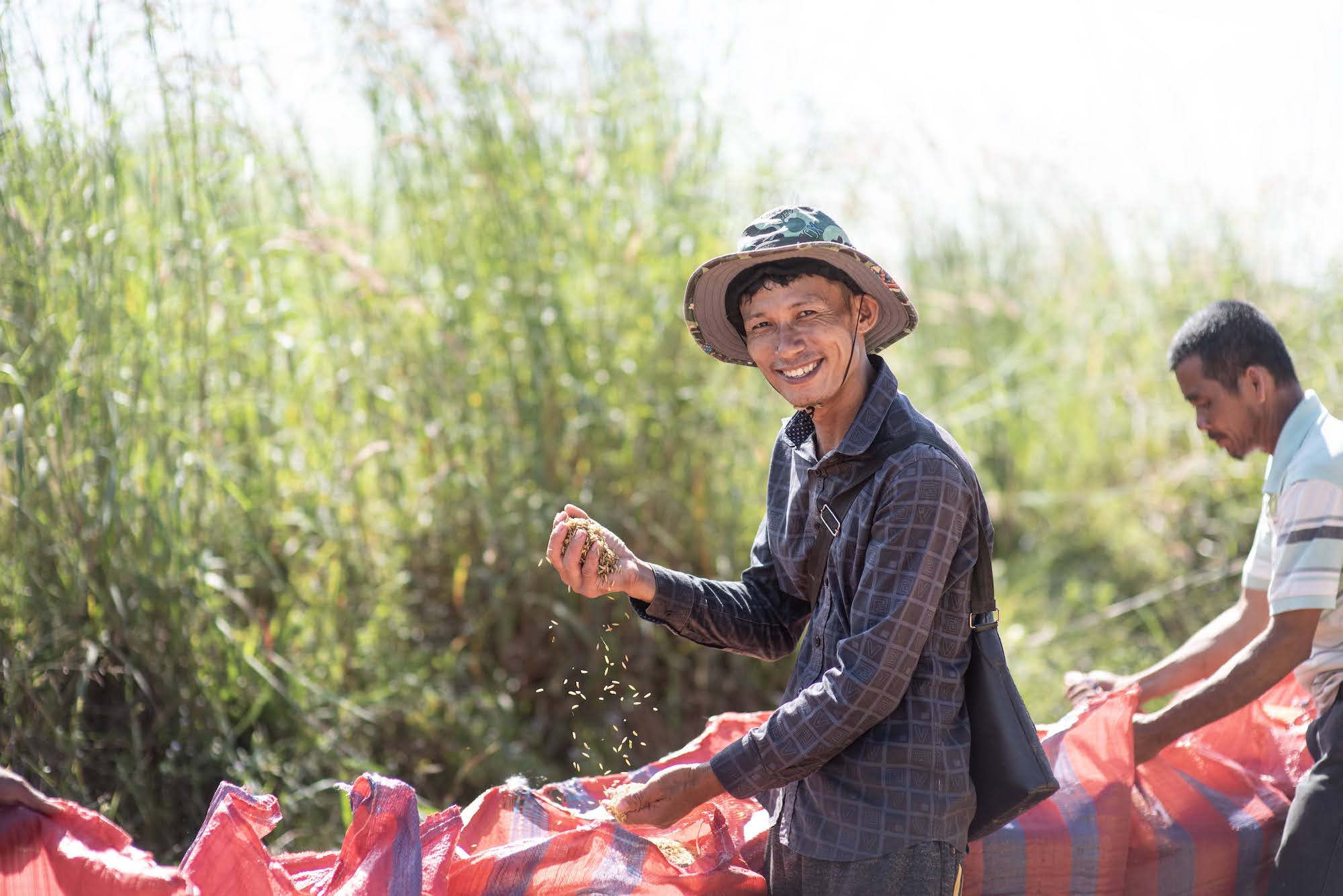
With the improvements in our farming and income, I feel more optimistic about the future. My dream is to save enough money so my children can go to university and have opportunities for a better life. I don’t have specific preferences for their careers — I just want them to study, follow their passions, and live happy, healthy lives.
I’m deeply grateful to APOPO, FCDO, CMAC, CordAid and all the supporters who made this possible. Their work has not only transformed my family’s life — but also improved the lives of everyone in this village.”

